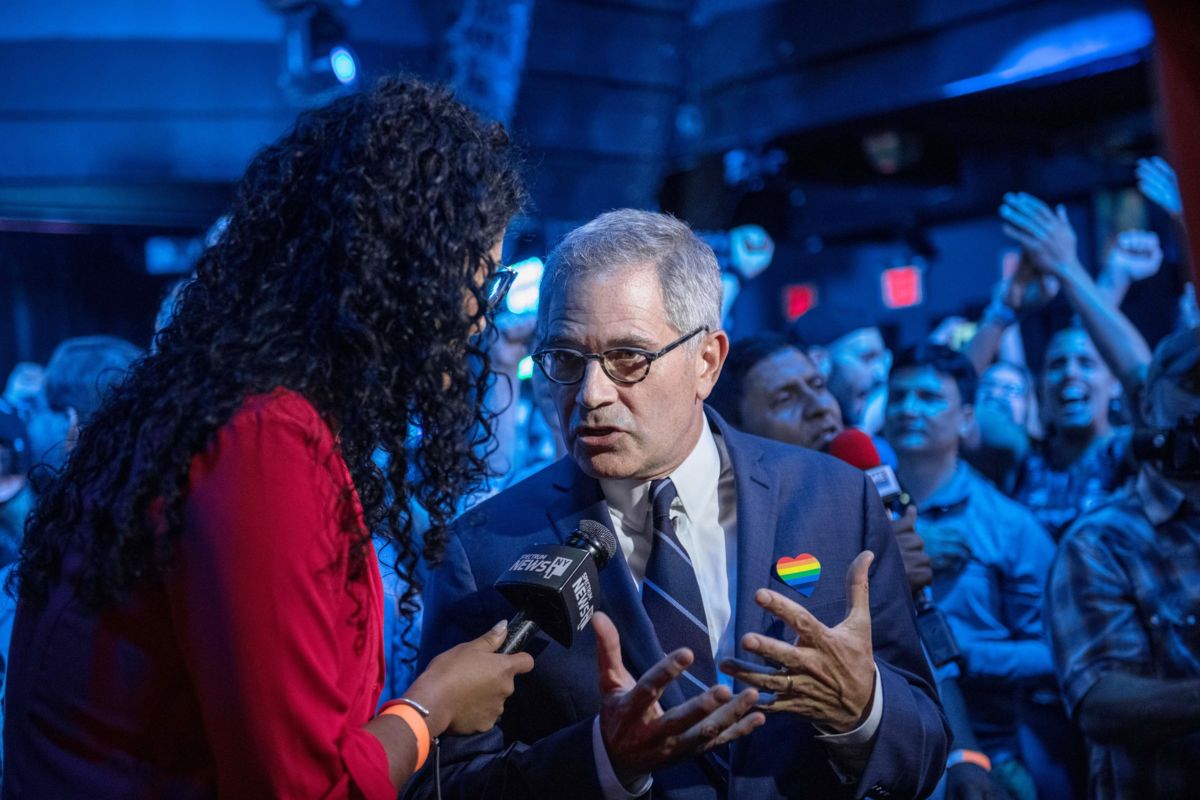The next time someone asks you why even popular criminal justice reforms remain so elusive, tell them the story of Pennsylvania’s House Bill 1614. Introduced by Republican legislators and quietly signed into law late last month by Democratic Gov. Tom Wolf, the measure is designed specifically to limit the discretion of a single district attorney in the state, Philadelphia reformer Larry Krasner. During his tenure, Krasner has drawn attention for his temerity in beginning to ruthlessly impose the will of the voters who elected him in November 2017 by revamping, in ways large and small, how the city’s prosecutors do business.
Pennsylvania’s new law specifically allows state attorneys to prosecute certain gun cases in Philadelphia through the state attorney general’s office if Krasner, the local DA, chooses not to. We talk an awful these days about the abuse of prosecutorial discretion around the country, about how district attorneys overreach and bring charges they shouldn’t bring causing incarceration rates to soar and many of their constituents to suffer. Here’s the opposite scenario unfolding in real time: state lawmakers are intruding on local authority just in case a prosecutor, for his own good reasons, chooses not to prosecute certain crimes.
It’s the northern version of what’s happened over the past two years to Aramis Ayala, the state attorney in Orlando, Florida. Ayala was stripped of her authority over death penalty cases by the governor and other prosecutors after she announced she would not seek capital punishment in murder cases. This did not happen because Ayala’s position was unpopular with her constituents. It happened because powerful political and legal forces opposed her reform efforts. The same thing is happening now to Krasner. His reform is being blocked from above, not below.
There is a great deal of confusion over how HB 1614 came to be. The Intercept, which broke the story, reports that some of the Democratic lawmakers who voted for the bill now say they were duped, and that they had no idea it singled out Krasner. There are questions about the transparency of the amendment process behind the legislation. There are questions about why Governor Wolf, a hero to death penalty abolitionists, would even sign a measure that creates such a fissure between Democratic lawmakers in Harrisburg and the Democratic stronghold of Philadelphia.
But perhaps the biggest questions of all revolve around how the state attorney general’s office maneuvered its way toward this law. When Krasner took office in January 2018 he immediately fired 31 prosecutors who were integral parts of the city’s tortured criminal justice system — individuals that he figured could undermine or oppose the reforms he wanted to put into place. Many of those fired lawyers went directly to work for Josh Shapiro,the state attorney general, and you don’t need to be a conspiratorialist to wonder if HB 1614 represents some measure of revenge for those Krasner canned.
Shapiro has tried and failed to make a bad situation better. On Tuesday, he told reportersthat his office would “continue to work in partnership” with Krasner’s office and that he “didn’t seek this law and I didn’t advocate for it.” That’s news to state lawmakers, some of whom went on the record after Shapiro’s remarks to say that the attorney general and his office lobbied directly for the law. So, too, did the police union lobbyists, who have battled relentlessly with Krasner over his reform efforts. And Krasner? He says he wants specific answers on how HB 1614, in its final form, came to be passed.
No wonder the editorial writers at the Philadelphia Inquirer were so incensed by all this. To them, the stunt pulled in the legislature is the latest in a long line of offenses imposed by conservative politicians against the city. “Philadelphia has the right to govern itself,” they wrote on Tuesday. “But time and again, Harrisburg undermines this sovereignty. It is especially audacious for Harrisburg to intervene with the pretense of preventing gun violence, considering that for decades that state has been preempting Philadelphia from enacting and enforcing its own gun control measures.”
This is hypocrisy and power politics at its worst. Lawmakers who routinely embrace the sanctity of local control voted to undermine that local control in this case because they don’t like the priorities of the prosecutor who is exercising that control. Legislators who routinely talk about curbing mass incarceration or addressing gun violence vote instead for a measure that will increase the number of criminal cases and that undermine the leaders on the frontline of fighting gun violence in Philadelphia neighborhoods.
Krasner is right. His so-called colleagues in law enforcement are out to get him. They’ve showed it over and over again. And he is owed an explanation, especially from among his Democratic counterparts. Either they knew the bill would target Philadelphia’s autonomy and voted for it anyway, or they had no idea what was in the bill and voted for it because the state’s attorney general and police unions endorsed it. Either way, it’s bad governance, it’s embarrassing, and it’s not a reasonable way to increase public safety, ease the cost of incarceration, or make the law in the state more fair, just, and equitable.
Join us in defending the truth before it’s too late
The future of independent journalism is uncertain, and the consequences of losing it are too grave to ignore. To ensure Truthout remains safe, strong, and free, we need to raise $29,000 in the next 36 hours. Every dollar raised goes directly toward the costs of producing news you can trust.
Please give what you can — because by supporting us with a tax-deductible donation, you’re not just preserving a source of news, you’re helping to safeguard what’s left of our democracy.
